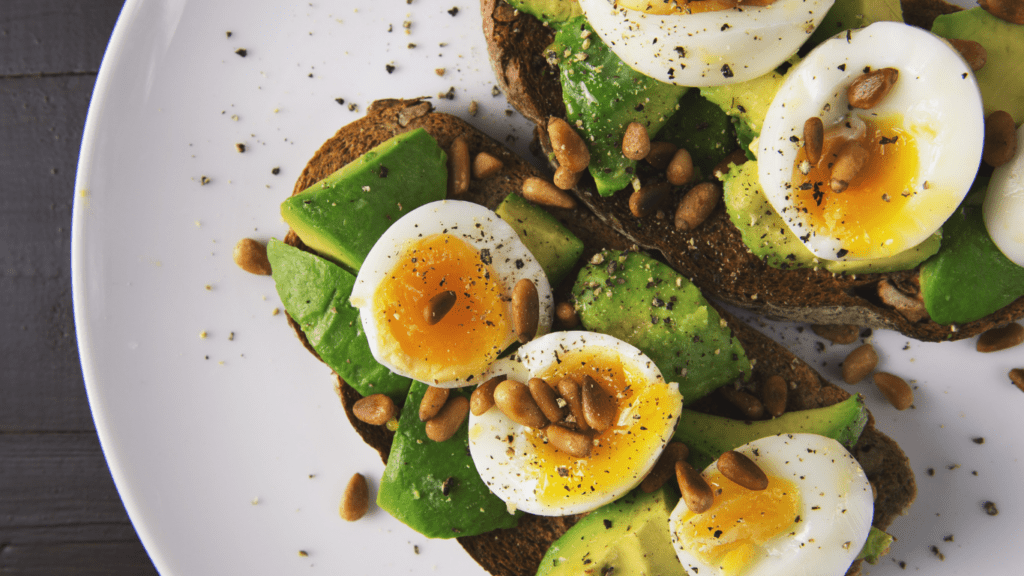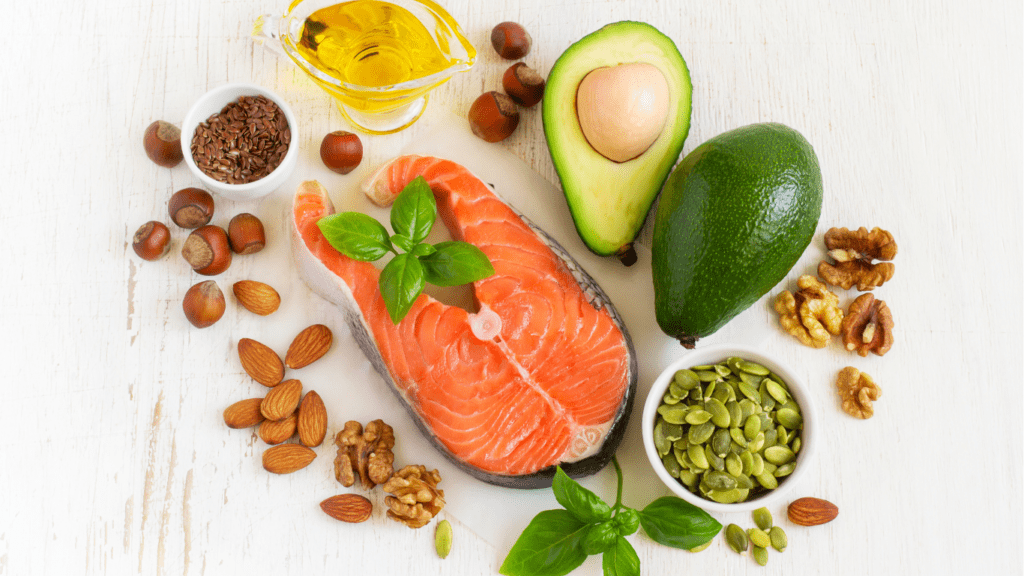Understanding Nutrition Myths
Nutrition myths persist despite vast amounts of science-based information available. They often spread due to misinformation and misconceptions among the public.
Why Do Nutrition Myths Persist?
Misinformation spreads easily through media channels and social networks. People often trust anecdotal evidence from friends or influencers rather than verified scientific research. Confirmation bias further fuels these myths; people tend to believe information that aligns with their pre-existing beliefs. This combination makes it difficult for accurate nutritional science to reach and convince the public.
Impact of Misconceptions on Health
Misconceptions about nutrition can lead to poor dietary choices. For example, many avoid carbohydrates entirely due to the myth that they’re inherently fattening. This can lead to energy deficits and nutrient imbalances. Similarly, fearing fats might result in insufficient intake of essential fatty acids, affecting brain function and hormone production. By believing these myths, individuals compromise their health, showcasing the importance of debunking falsities with factual evidence.
Common Nutrition Myths Debunked

Nutrition myths can spread misleading information about diet and health. Here’s a closer look at several persistent myths and the facts that counter them.
Myth 1: Carbs Are Bad for You
Carbs often receive a bad reputation, yet they’re essential for energy. Complex carbs like whole grains and legumes support digestion and provide vital nutrients. According to the Dietary Guidelines for Americans, carbs should make up 45-65% of daily caloric intake. Carbs become harmful only when consumed in excessive amounts or from processed sources, leading to issues like weight gain and insulin resistance.
Myth 2: All Fats Lead to Weight Gain
Fats aren’t solely responsible for weight gain and are crucial for absorbing vitamins A, D, E, and K. While trans and saturated fats increase health risks, monounsaturated and polyunsaturated fats found in avocados, nuts, and fish can promote heart health. A study published in the Journal of the American College of Cardiology highlights the benefits of these healthy fats. Moderation and choosing the right types of fat are necessary for a balanced diet.
Myth 3: Detox Diets Cleanse Your Body
Detox diets claim to rid the body of toxins, but there’s no scientific backing. The body naturally detoxifies through the liver, kidneys, and lungs. Restrictive detox plans may lead to nutrient deficiencies and metabolic slowdown, as noted by the National Center for Complementary and Integrative Health. Maintaining a balanced diet with fiber, water, and essential nutrients ensures optimal body function without the need for detox diets.
Myth 4: Eating Late at Night Causes Weight Gain
The timing of meals alone doesn’t cause weight gain; calorie surplus does. Metabolic rate doesn’t drastically drop at night, and it operates similarly regardless of meal timing. Factors like food choice and portion size impact weight more than the time of day. A study in the British Journal of Nutrition found no concrete link between late-night eating and obesity. It’s essential to assess overall dietary patterns rather than focusing solely on timing.
The Role of Social Media in Spreading Myths
Social media significantly amplifies nutrition myths, confusing many about proper dietary practices. Fast-paced sharing and viral trends spread information faster than corrections can keep up.
Influence of Online Platforms
Online platforms like Instagram, TikTok, and Facebook shape nutrition beliefs by allowing users to share information quickly and widely. Influencers often promote trends based on personal experiences, not scientific evidence. Their large followings can lead to widespread adoption of inaccurate ideas. For instance, Instagram posts that glorify low-carb diets often lack data on carbohydrates’ benefits. Viral TikTok trends like detox challenges might seem appealing, yet they’re usually unsupported by science. Algorithms favor content that engages emotionally, further complicating the spread of reliable nutrition facts.
Recognizing Misinformation
To discern truth from myth, it’s essential to critically evaluate online content.
- Reliable sources include registered dietitians and peer-reviewed journals.
- Clickbait headlines and overly simplistic explanations signal misinformation.
- Engage with genuine experts for accurate advice.
- Users might encounter a post claiming all fats cause weight gain; careful scrutiny reveals that healthy fats support fitness goals.
- Misleading claims about late-night eating can also misinform readers unless they consider total caloric balance.
By analyzing sources and questioning sensationalism, it’s possible to navigate social media’s complex nutrition landscape effectively.
How to Discern Fact from Fiction
Understanding nutrition requires separating fact from fiction amid overwhelming information. Detecting valid claims ensures better dietary choices.
Tips for Evaluating Nutrition Claims
Evaluating nutrition claims involves critical thinking and skepticism. First, examine the evidence behind the claim. Reliable claims often cite peer-reviewed studies with clear methodologies. Second, beware of sensational language. Words like “miracle” or “guarantee” may indicate a lack of scientific backing.
Be cautious of sources with vested interests. Claims from companies selling supplements or weight-loss programs may prioritize profit over truth. Look for consensus among experts. If multiple registered dietitians or nutritionists agree, the claim likely holds validity. Cross-reference information across platforms to ensure consistency and reliability.
Trusted Sources for Nutrition Information
Finding trusted sources is crucial for valid nutritional information. Government websites like the USDA or CDC offer science-backed guidance. Peer-reviewed journals, such as The American Journal of Clinical Nutrition, provide detailed analysis and updates on dietary studies.
Registered dietitians (RDs) and nutritionists are reliable professionals, offering expert advice based on evidenced science. Following organizations like the Academy of Nutrition and Dietetics ensures access to accurate resources. Online, search for content citing these reputable sources, and avoid taking advice from unqualified social media influencers. Prioritize the quality of information to maintain a well-informed perspective on nutrition.
Encouraging Evidence-Based Nutrition
Relying on evidence-based nutrition ensures informed dietary decisions while dispelling common myths. Scientific research provides clarity and accuracy in understanding nutritional needs.
Benefits of Scientific Research
Scientific research plays a crucial role in advancing nutritional knowledge. It offers validated insights into how nutrients affect the body and helps identify safe and effective dietary practices. Research eliminates guesswork by presenting findings based on structured experiments, peer-reviewed studies, and clinical trials. For instance, studies show that balanced diets rich in fruits, vegetables, whole grains, and lean proteins support long-term health. Research also highlights the benefits of particular diets, like the Mediterranean diet, known for promoting heart health.
Promoting Healthy Eating Habits
To establish healthy eating habits, it’s essential to rely on evidence-based guidelines. By following scientifically backed dietary recommendations, individuals can achieve nutrition that meets all health requirements. For example, the Dietary Guidelines for Americans offer practical advice for achieving balanced nutrition through varied food choices. Emphasizing whole foods over processed ones, these guidelines encourage portion control while focusing on nutritional quality. Evidence-based nutrition prioritizes real foods and variety, contributing to overall wellness and disease prevention.


 Senior Sports Writer
Alfred Alder is the senior sports writer at Sprint Scoop News, bringing his extensive knowledge of fitness, training, and sports business to the forefront. With a career spanning more than a decade, Alfred specializes in delivering high-quality, engaging content that covers everything from sponsorship trends to the latest in health and nutrition for athletes. His deep understanding of the sports industry allows him to provide readers with comprehensive insights that make complex topics accessible and exciting.
Senior Sports Writer
Alfred Alder is the senior sports writer at Sprint Scoop News, bringing his extensive knowledge of fitness, training, and sports business to the forefront. With a career spanning more than a decade, Alfred specializes in delivering high-quality, engaging content that covers everything from sponsorship trends to the latest in health and nutrition for athletes. His deep understanding of the sports industry allows him to provide readers with comprehensive insights that make complex topics accessible and exciting.
